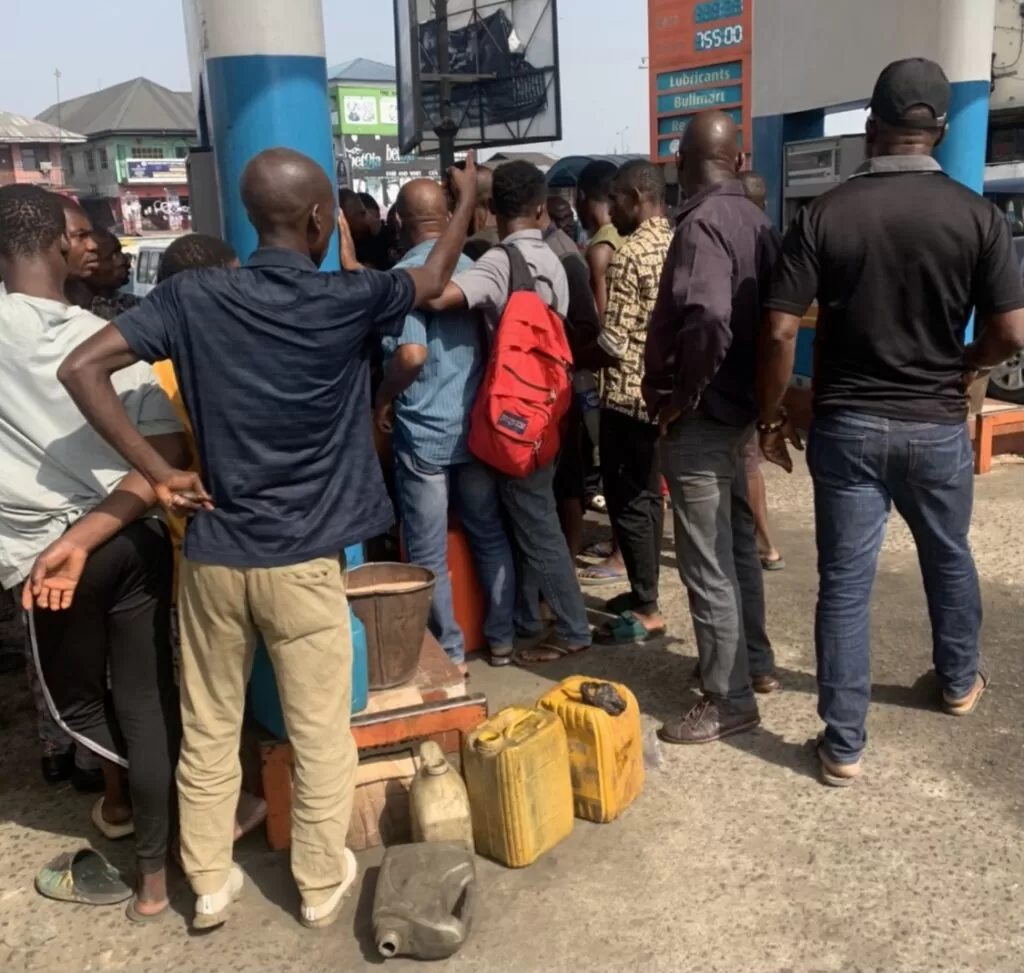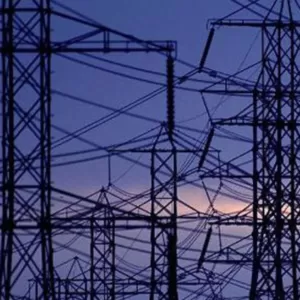Nigerian Citizens React With Disbelief As Fuel Prices Skyrocket Overnight

Port Harcourt Residents in for a Long New Year's Day 2023 as Fuel Stations Remain Closed
In a shocking turn of events, Nigerian citizens woke up to a staggering increase in fuel prices that left them reeling with disbelief. The sudden surge in fuel costs, from N680 to an exorbitant N1200, has ignited widespread outrage and frustration among the already burdened populace. As news of the price hike spread like wildfire, social media platforms became inundated with expressions of dismay and anger.
Many Nigerians took to Twitter and Facebook to vent their frustrations, questioning the government’s rationale behind such a drastic measure. With the majority of Nigerians heavily reliant on petrol for transportation and power generation due to inadequate infrastructure, this sudden spike hits hard at their already strained budgets. Citizens argue that this unprecedented increase will have far-reaching consequences on their daily lives.
With inflation already running rampant throughout the country and salaries failing to keep up, affording basic necessities is becoming increasingly difficult for ordinary Nigerians. The rise in fuel prices will undoubtedly lead to a rise in transportation costs, further burdening individuals who rely on public transport or own vehicles. As citizens grapple with these shocking developments, calls for transparency and accountability from the government are growing louder.
The Shocking Overnight Hike: Fuel Prices In Nigeria Soar From N680 To N1200
In a sudden and unprecedented move, Nigerians woke up to a shocking increase in fuel prices that left them reeling. The cost of fuel, a vital commodity for the nation’s transportation sector and daily life, skyrocketed overnight from N680 to an exorbitant N1200 per liter. This abrupt surge caught citizens off guard, causing widespread panic and outrage across the country. The staggering price hike is expected to have far-reaching consequences for Nigerians already grappling with economic hardships.
Transportation costs are likely to spike, burdening individuals who heavily rely on public transit or commute long distances for work. Additionally, the increased fuel prices will undoubtedly impact the prices of essential goods and services, leading to inflationary pressures on an already strained economy. This unexpected blow has sparked intense debates among citizens and ignited renewed frustration towards the government’s handling of economic policies.
Many argue that such a drastic increase without prior warning or explanation is both unjustifiable and insensitive given Nigeria’s current socio-economic climate. As Nigerians grapple with this shocking overnight hike in fuel prices, concerns about its implications on their everyday lives loom large.
Government’s Decision Stuns Nigerians: Fuel Price Surges To Record High
In a move that has sent shockwaves across the nation, the Nigerian government has announced an unprecedented increase in fuel prices, leaving citizens grappling with the sudden surge. The decision to spike the price from N680 to a staggering N1200 per liter has left many Nigerians reeling in disbelief and frustration. The government’s justification for this drastic measure stems from rising global oil prices and the need to alleviate mounting pressures on Nigeria’s economy.
However, critics argue that such a substantial increase will only exacerbate the already dire situation faced by ordinary Nigerians who are grappling with high unemployment rates, inflation, and a sluggish economy. This sharp rise in fuel prices is expected to have far-reaching consequences for everyday Nigerians. Transportation costs are likely to skyrocket, placing an additional burden on already strained household budgets.
Small businesses that heavily rely on petrol or diesel for their operations will also bear the brunt of this decision, potentially leading to closures and job losses. Moreover, this sudden surge in fuel prices is seen by many as a betrayal of trust between the government and its citizens. Previous promises of economic stability and improved living conditions now seem hollow as Nigerians wake up to this startling reality.
Economic Implications Of The Sudden Fuel Price Spike On Nigerian Citizens
The sudden spike in fuel price from N680 to N1200 has significant economic implications on Nigerian citizens. Firstly, this increase will directly impact transportation costs. Nigerians heavily rely on petrol for their daily commute, be it by private or public transport. With the fuel price surge, transportation fares are likely to skyrocket, burdening the already financially strained citizens. This will not only affect individuals but also have a ripple effect on businesses that depend on transportation for their operations.
Moreover, the rise in fuel prices will lead to an increase in the cost of living. Higher fuel costs will result in increased production and transportation expenses for goods and services. As a consequence, businesses are likely to pass these additional costs onto consumers through higher prices for essential commodities such as food, electricity, and other basic necessities. This escalation in the cost of living will disproportionately affect low-income households who already struggle with limited disposable income.
Additionally, this fuel price hike may negatively impact inflation rates within Nigeria’s economy. As transportation and production costs rise due to expensive fuel prices, businesses may find it necessary to raise wages or salaries for employees. These increased labor costs can further contribute to inflationary pressures within the country. In conclusion, the abrupt surge in fuel prices from N680 to N1200 holds severe economic implications for Nigerian citizens.
Protests Erupt Nationwide As Nigerians Grapple With Unprecedented Fuel Price Surge
Nigeria, Africa’s most populous nation, has been gripped by widespread protests in the wake of an unexpected and staggering increase in fuel prices. The recent surge saw fuel prices skyrocket from N680 to a staggering N1200 per litre, leaving Nigerians shocked and struggling to cope with the sudden financial burden. The price hike comes as a severe blow to an already economically strained population, grappling with high unemployment rates and rising inflation.
For many Nigerians, fuel is not just a means of transportation; it is a lifeline that powers generators used for electricity in homes and businesses due to chronic power shortages. As such, the exorbitant increase in fuel prices threatens to further exacerbate the difficulties faced by everyday citizens. Fueled by frustration and anger, nationwide protests have erupted across major cities such as Lagos, Abuja, and Kano.
Demonstrators have taken to the streets demanding immediate government intervention to alleviate their economic hardships. Protesters argue that such an astronomical surge in fuel prices is unjustifiable and demand transparency regarding how these decisions are made. The government’s response has been met with skepticism and disappointment.







